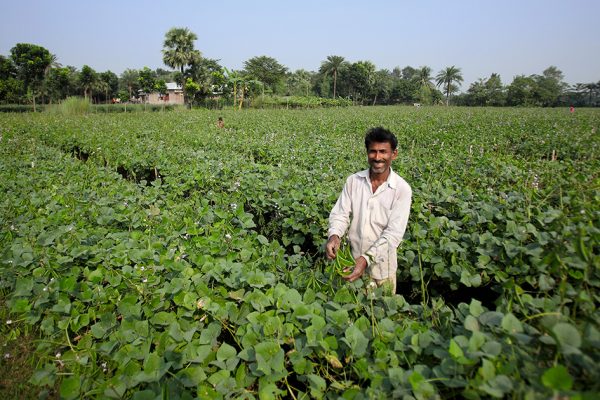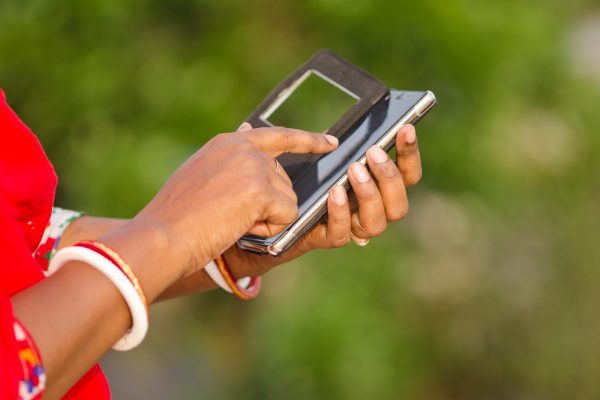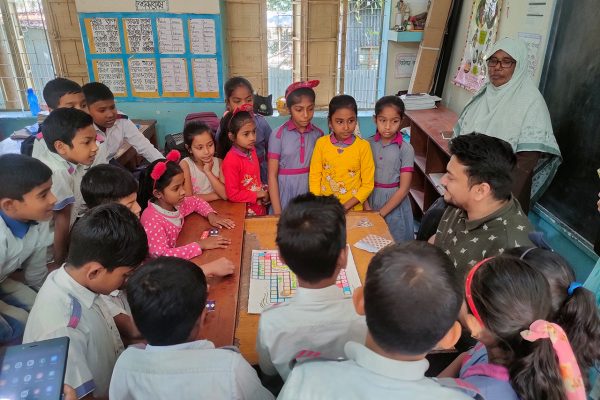Ending poverty for people with disabilities: What will it take?
Reading Time: 3 minutes
In Bangladesh, one in 10 people live with a disability. That’s 16 million people, more than double of the population of Hong Kong. While countries around the world have made progress in reducing poverty, the condition of the majority of people with disabilities has not improved. People with disabilities continue to live with a higher poverty and unemployment rate.
Rahima and Kashem started their business at the age of 50. The couple sells clothes in a van on a busy street in Kishoreganj, Bangladesh. These were the same streets where they would beg before.
Both Rahima and Kashem have visual impairments. They spent the majority of their lives in poverty. Their families could barely support them, and they were never able to find work they could do.
When the couple started their business, they thought about what could make it easy for them. The wholesale market of clothes is far from their home, so they bought a van to buy and sell clothes. Then they bought a hand mic to attract buyers in the streets.
People with disabilities, like Rahima and Kashem, have unique needs. They also experience a double burden because of poverty. People with disabilities are more likely to have less money, more informal jobs and to be more socially isolated. In Bangladesh, the government and civil society organisations have long been advocating for the inclusion of people with disabilities in various ways. However, equal participation is a long way off.
BRAC’s Ultra-Poor Graduation programme aims to change that through its disability-inclusive pilot project in four districts of Bangladesh. The first year of the two-year-long project ended recently with early signs of success. Here are four unique features that can be attributed to its success so far.
1. Rigorous targeting and tailored age and gender criteria for maximum inclusiveness.
The Washington Group Questionnaire was used to correctly identify people with disabilities according to international standards. The age limit was extended to over 60 years, unlike our regular Graduation approach, as people are likely to develop disabilities as they grow older.
2. Intensive rehabilitation and psychosocial assessment for holistic support.
People with disabilities living in extreme poverty face a double burden. They often have undiagnosed needs and lack agency. They lose sight of hope to pursue a happy and independent life. As a solution, rehabilitation and psychosocial officers were appointed for targeted assessment and counselling.
Our staff identifies the intensity of the disability and the overall psychosocial condition of the participants. Short, mid and long-term plannings are then made, including therapy, training for their caregiver and adaptations in the surroundings they live in to overcome any barriers through an enabling environment. For example, cues are developed and installed surrounding the house of people with visual impairments for independent navigation.
3. Tailored income generating activities motivate people to take charge of their own lives.
Participants are divided into two groups depending on the intensity of their disabilities. The group with the most severe forms of disability receive assets for income generating activities as grants, while the group with less severe disabilities receive assets at 50% grant with zero interest rate. Enterprises are selected based on the ability of the person and low-cost adaptation to make it effective and feasible.
For example, for poultry, building the chicken house in a higher level for people who cannot bend down, making accessible seating arrangements for people involved in small business, providing hand mics for sellers for people with visual impairments, like Rahima and Kashem.
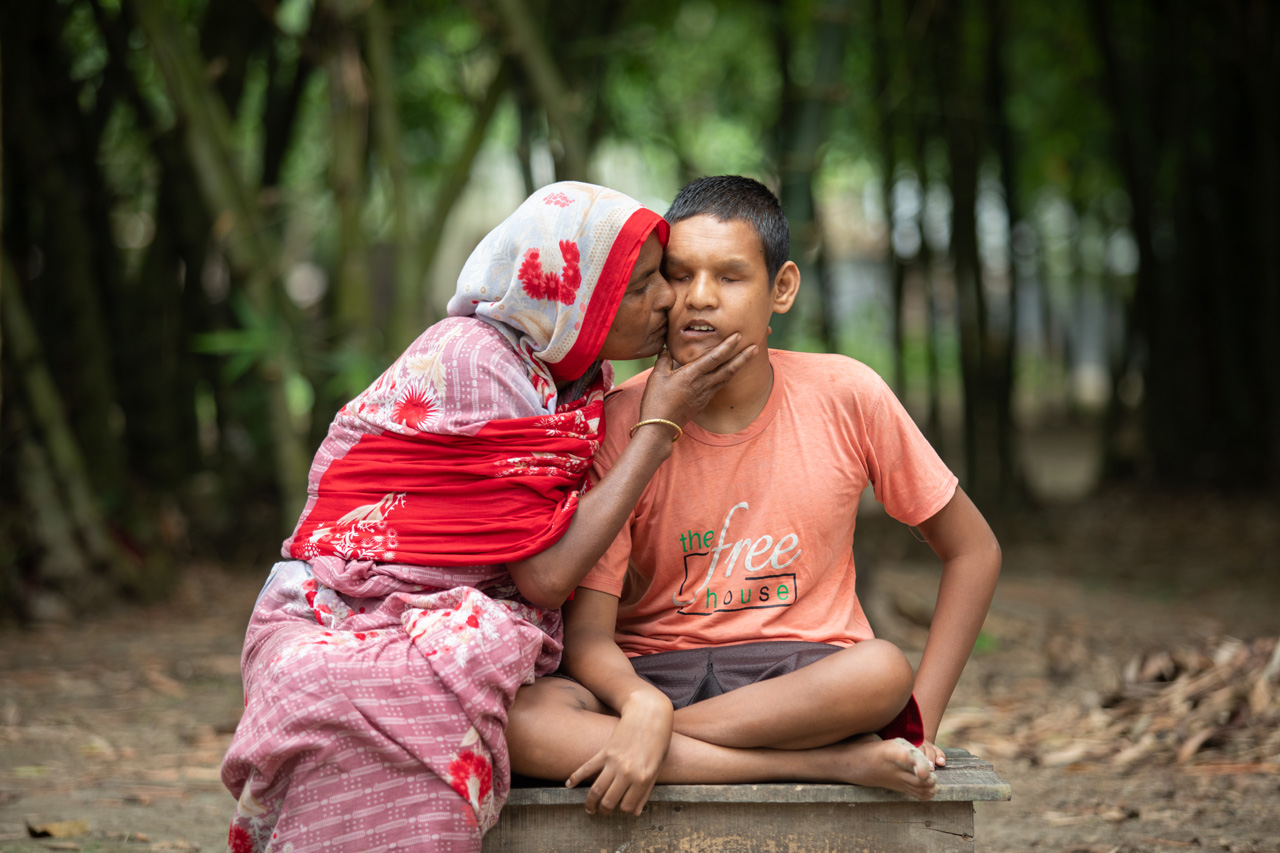
A mother taking care of her son. Photo credit: Abdullah Al Kafi, 2021 © BRAC
4. Ending stigma starts from home.
People with disabilities often remain isolated from their families and communities. Change in mindsets will only be effective when everyone in the community understands and embraces disability.Our psychosocial officer counsels household members of the person with disability first and then extends it to the community. They raise awareness through our social solidarity committees where they reassure that people with disabilities too, can have prosperous lives with the right support. We have seen that multiple sessions with families spark confidence in their son or daughter in that they too can have a meaningful life.
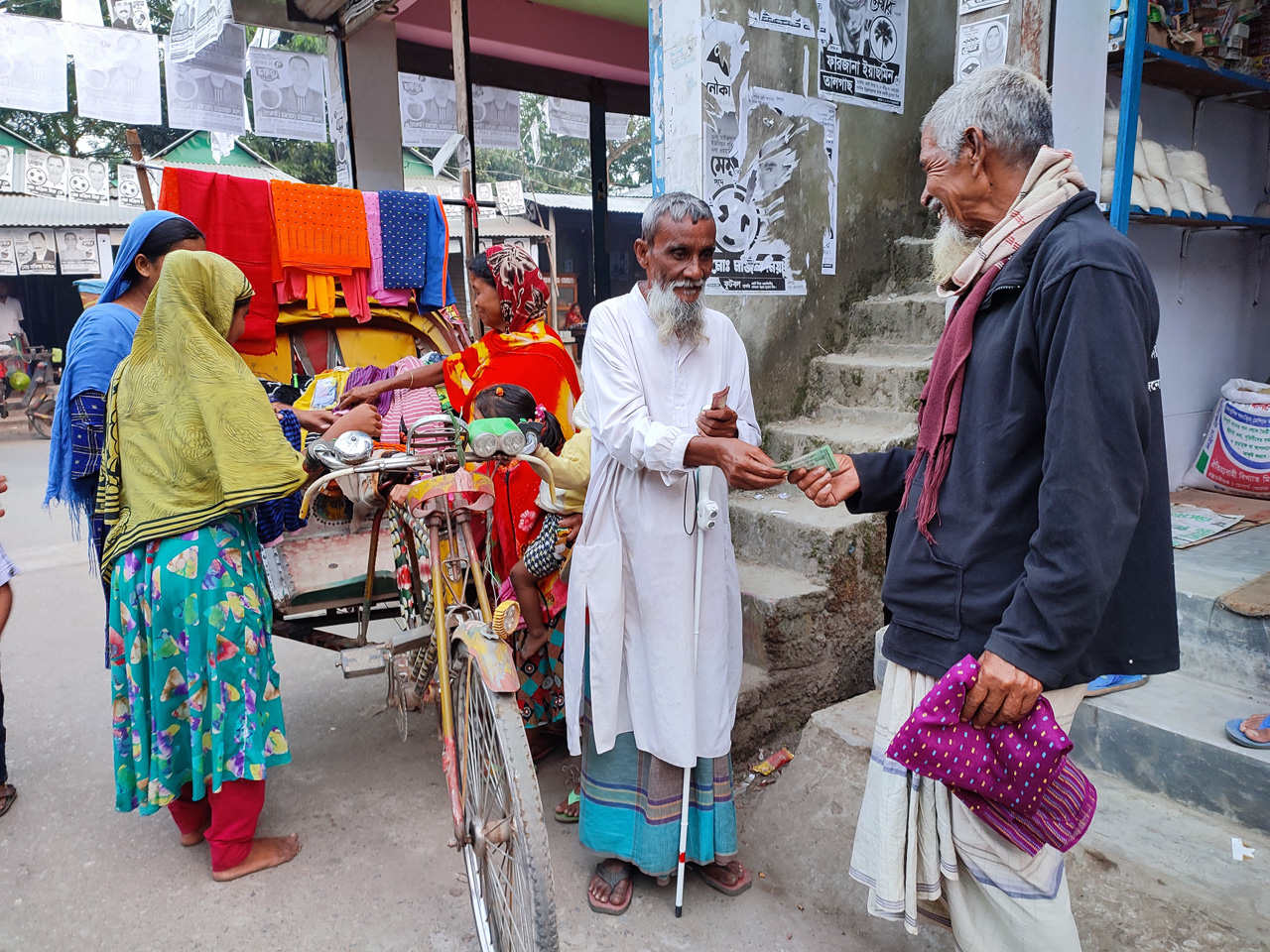
Rahima and Kashem working for their new business. Photo credit: Md Sajjad Hossain, Psychosocial Officer, Kishoreganj, 2021 © BRAC
As Kashem says with a big smile, “We used to wear torn clothes once, asking for money and food from people. Now we sell new clothes and have tea with them in the tea stalls.”
In far too many cases, disability is both a cause and consequence of poverty. With empathy, understanding and the right support, people with disabilities can, and have, escaped extreme poverty, living lives with dignity. We are committed to seeing that day when everyone has an equal chance to pursue their dreams and participate equally in society.
Tania Tasnin is a Manager, Knowledge Management and Communication, at BRAC Ultra-Poor Graduation programme; Ahona Azad Choyti and Sameeha Suraiya are Communications Specialists at BRAC Communications.
Disability inclusion is a major priority at BRAC. The Ultra-Poor Graduation programme, with technical assistance from Humanity & Inclusion, is piloting a disability-inclusive Graduation programme. The pilot is running in four districts of Bangladesh (Rangpur, Kurigram, Mymensingh and Kishoreganj) with 1,200 people with disabilities living in extreme poverty. Early insights emerging from the pilot hold valuable lessons for development actors to scale disability inclusion in ultra-poor programmes across the world.


